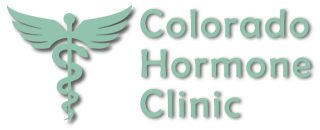
Importance of Replacing Deficient Hormones
Thyroid, testosterone, estrogen, progesterone, DHEA and growth hormone — to levels we had in our youth is beneficial to both our health and quality of life. This booklet is an overview of biologically identical hormone replacement for men and women. This specialty of medicine is growing at an impressive rate due to the increasing awareness of the health benefits of natural hormones and the detrimental effects of synthetic hormones. The first printing of this booklet was in 1998. A lot of media attention and medical studies have focused on hormone replacement in the last few years. This is our 4th revision and is reflective and explanatory of the recent mystery and misinformation about hormones. An additional excellent reference source on natural hormones for patients and physicians is a book I authored in 2002 entitled Natural Hormone Replacement for Men and Women: How to Achieve Healthy Aging.
Conventional medicine has always held the belief that aging is inevitable and that the progressive deterioration that occurs in our adult years cannot be altered. This is simply not true. We have also been lead to believe that the diseases of aging, such as heart disease, stroke, cancer, and senility, are all a part of the normal aging process. Fortunately, there is an exciting revolution in science and medicine that identifies hormone replacement as preventive medicine. The downward spiral of physical and mental decline that we have come to accept as a natural part of growing older is becoming recognized as somewhat controllable and preventable. The most effective solution to any disease process is the prevention of that disease. We are entering an era where mainstream medicine will focus on slowing down the aging process and thereby achieve prevention of both the illnesses of aging as well as the aging. One of the most important and successful treatments is optimal hormone supplementation. The amazing health-protective benefits of hormones are growing in understanding, acceptance, and application. Research has shown that maintaining our hormone levels in a youthful state can prevent the debility and illness that accompany the aging process. Obviously this will lead to increased longevity by preventing the illnesses that usually lead to our demise. However, most importantly is the fact that our quality of life in our later years will be significantly enhanced.
Over the last 50 years of research in the fields of endocrinology and immunology have improved our knowledge as to how and why we age. The rate and incidence of disease formation, as well as the rate of aging, are partially controlled by our endocrine and immune systems. These two systems are responsible for the adaptation and change of our bodies in relation to the aging process. The endocrine system regulates our body’s temperature, reproduction, growth, aging and immune system. Communication between the nervous system, the endocrine system, and the immune system makes it possible for us to adapt and survive in our environment. It is through hormones that these systems interact to accomplish this mission. Hormones are molecules that are released into the bloodstream and exert biochemical effects on distant organs and cells. Hormones can affect every cell in the body by activating a receptor site on the cell and thereby causing an internal activation of protein synthesis and activity. The hormones affect is determined by a specific receptor site on the target cell. Hormones might have different actions on different cell types in different tissues. Hormones serve as messengers from the central nervous system telling our internal organs how to function. A decrease in the production of hormones begins in middle age and continues to diminish in a linear fashion until old age.
Hormones are either proteins or derivatives of cholesterol. These molecules are manufactured in endocrine glands, which include the adrenal glands, the testes, ovaries, pancreas, thyroid, pituitary gland, and pineal gland. When there are degeneration and aging of the organs, the levels of hormones diminish. In addition, as we age, the specific receptor sites in the cells tend to change and become not as receptive to the hormones as they once were in our younger years. Whether the problem is low hormone levels or hormone resistance, the solution is optimal hormone replacement.
Whatever the cause may be, any decrease in the stimulation of the receptor site will result in a decrease in the stimulation of the cell, decrease in cellular repair, decrease in protein synthesis, the inability of the cell to regenerate and the gradual destruction of the cell. This is what occurs with age. A deficiency of hormones will, therefore, result in an imbalance in this very precise, self-regulating system. For many years, medicine has recognized the health benefits of replacing these waning hormones. For most physicians, synthetic hormones were the only option. Now it is possible to produce natural hormones that in every way match those produced by the body. Most hormones can be derived from plants, such as soy and yams. We have come to understand that synthetic hormones, which are chemically different than those naturally found in the body, can cause a whole host of side effects and even cancer. It does not make sense whatsoever to replenish with chemically different hormones when bio-identical hormones, to which our bodies are accustomed, are available.
There is a growing change in how we practice medicine. People are beginning to realize that they no longer have to accept the fact that their health, appearance, and function must deteriorate. They no longer want to accept growing frail and feeble. This new evolution is a culmination of research efforts over the years from some of the most distinguished medical and scientific research centers in the country. Physicians have finally realized that science has now given them the tools to enhance the quality of life by preventing deterioration through hormone replacement. Science is creating a new paradigm of preventive medicine by allowing our bodies to remain strong, healthy and vigorous. For centuries man has been searching for the Fountain of Youth, that potion that would stop the aging process. Research has now shown that part of the answer exists within our endocrine system. Medical journals have well-documented studies on the health benefits and feel-good benefits of HRT. Several medical references are listed in the book by Neal Rouzier, M.D., Natural Hormone Replacement for Men and Women: How to Achieve Healthy Aging.
Hormones control virtually all of the functions of the body including our reproductive, immune and metabolic systems. Hormones can actually control our overall physical and mental health. As the levels of hormones decline so do we decline both physically and mentally. We lose our energy, vitality, and health, as well as our longevity. By restoring these hormones to their youthful levels it is now possible to restore our youthful zeal and energy and to strengthen and bolster our bodies as well as our minds. We can improve many of the symptoms that we have come to associate with old age. We can also regain the youthful resilience that enables us to cope gracefully with the stressors that challenge us every day.
Hormone replacement therapy, however, is not a panacea. It will not reverse aging. It will not keep us permanently at one age. We will still continue to age and lose cells secondary to a process that is regulated genetically. With hormones, we can slow the precipitous decline that occurs after midlife. There will be no sudden falling off in our physical and mental health. We will stay resilient. There will only be a gradual transition that will be much less noticeable than it would be without the hormone replenishment. The purpose is to simply replenish the hormones that already occur naturally in our body and boost them back up to the appropriate medically sound levels necessary to maintain youthful health and vigor. Again, the key is to replenish all of the deficient hormones back to a more youthful balance, thereby producing a synergistic effect between the hormones. Which hormones to replenish, how much to replenish and how to adjust the hormones so that they have a synergistic effect is the art and science of the new specialty of natural hormone replacement medicine. I prefer the term preventive medicine. Vitamins, diet, and exercise are important, but hormone replacement is the only therapy that I have seen that can restore energy, make patients feel and function better and provide long term therapeutic protection. The next few chapters of the booklet will review each of the hormones, their health benefits as well as the detrimental effects of being without the hormone.

